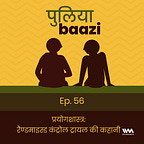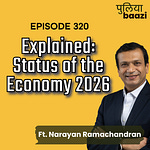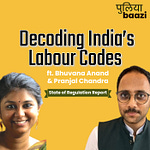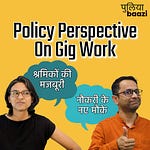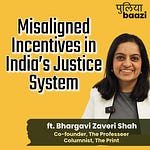Abhijit Banerjee, Esther Duflo, and Michael Kremer won the Nobel Prize in Economics 2019 “for their experimental approach to alleviating global poverty”. This experimental approach — Randomised Control Trials (RCTs) — is an alternative paradigm for conducting economics research. Adopted from medicine, RCTs are arguably referred to as the ‘gold standard’ for establishing causality. So this episode is about RCTs, their successes, and the ethical arguments against them. We are joined by Apurva Kumar programme manager at the Takshashila Institution, who has over 7 years of experience in the social development sector. He blogs about public health at Pubheal.
यह चर्चा है रैण्डमाइस्ड कंट्रोल ट्रायल (RCT) के बारे में, एक ऐसी प्रक्रिया जिसने अर्थशास्त्र करने का तरीका ही बदल कर रख दिया | यह प्रकिया मेडिकल रिसर्च में उपयोग की जा रही थी लेकिन अब इसका प्रयोग गरीबी उन्मूलन के लिए भी हो रहा है| इस सोच के लिए अभिजीत बैनर्जी, एस्थर डूफ्लो, और माइकल क्रेमर को इस साल का नोबेल पुरस्कार भी मिला | तो हमने चर्चा की अपूर्व कुमार के साथ RCT के उपयोग, दुरुपयोग, और नैतिकता के बारे में |
Readings:
[Book] Poor Economics: Rethinking Poverty & the Ways to End it: Abhijit Banerjee & Esther Duflo
Randomise This! On Poor Economics: Sanjay Reddy
Evidence, policy, and politics: Jean Drèze
Puliyabaazi is on these platforms:
Twitter: https://twitter.com/puliyabaazi
Facebook: https://www.facebook.com/puliyabaazi
Instagram: https://www.instagram.com/puliyabaazi/
Subscribe & listen to the podcast on iTunes, Google Podcasts, Castbox,, AudioBoom, YouTube or any other podcast app.
See omnystudio.com/listener for privacy information.


